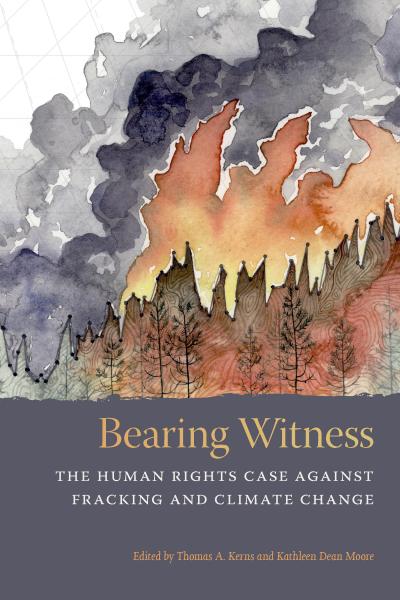On Earth Day, a New Strategy for Reclaiming the Future from Fossil Fuels
By Kathleen Dean Moore
Fifty-one years ago today, 21 million people celebrated the first Earth Day, a national commitment to clean air and water on the planet that sustains and delights us. Now, more than a billion people in 190 countries turn out to celebrate Earth Day every year and recommit to the planet’s protection.
Ten years after the first Earth Day, executives at Exxon and Shell learned that drilling and aggressively marketing oil and gas would irretrievably harm the planet, causing global warming and consequent catastrophic sea-level rise and ecological and social calamity. Now, the United States has 969,140 functioning oil and gas wells, with 1,400 new wells coming on line every month. Together, they are pumping out 12.8 million barrels of oil a day and 116.7 billion cubic feet of natural gas, with revenues estimated at $181 billion every year.
Meanwhile, sea levels are rising at twice their previous rate and the global temperature has risen 1.5o F. Already, global warming-related dangers—such as floods, droughts, cyclones, sea-level rise, crop failures, and environmental degradation—are driving approximately 20 million people from their homes each year.
What’s wrong with this picture?
Although millions of people committed to a healthy planet are exhausting themselves, as they work creatively and conscientiously to save Earth from global warming, it’s evident that, so far, their best efforts are not equal to the task. Through heavy investments in advertising, politics, and politicians at all levels of government, the fossil fuel industry has continued to drill with few legal and moral constraints.
It’s time to try something new.
That’s why, on this Earth Day, Tom Kerns and I are excited to launch our new book, Bearing Witness: The Human Rights Case Against Fracking and Climate Change. The book makes this argument:
1. Global warming and the extreme extraction techniques that fuel it are on track to create the greatest violation of human rights the world has ever seen.
2. Governments are not only failing to protect the human rights of their citizens, they are enabling rights violations through active collaboration with the fossil-fuel industry.
3. Historically, when nations legalize human-rights abuses and crimes against humanity, as in Nazi Germany, international human-rights courts call them to account. They base their indictments on global standards of human decency encoded in instruments such as the Universal Declaration of Human Rights, the Nuremberg Principles, and others.
4. The same international Tribunals have the power to name the human-rights abuses inherent in the collusion between governments and the fossil-fuel industry, and call governments to account for their treachery. By that means, they can make unacceptable what has long been accepted, transforming the narrative that has, for far too long, allowed the fossil-fuel industry to profit from a business plan that threatens to destroy civilization as we know it.
Bearing Witness tells the story of the first international human-rights tribunal ever to assess the human rights violations of fracking and climate change. The 2018 Permanent Peoples’ Tribunal Special Session on Fracking and Climate Change ruled that governments are failing in their duties to protect the rights of their citizens; rather, in an “axis of betrayal,” governments and fossil fuel industries are colluding in massive violations of citizens’ rights to health, life, security, and participation, systematically breaching the norms of the Universal Declaration of Human Rights. Fracking itself is a “deadly, large-scale experiment in poisoning humans and nonhumans . . . in violation of the Nuremberg Code.”
The Tribunal’s findings weaken the social license of the extreme extraction industries by making manifestly clear the connection between environmental destruction and human rights violations. By relying on the Universal Declaration of Human Rights, the case summons the power of the greatest moral consensus the planet has ever achieved.
For this reason, Bearing Witness argues, a human-rights approach to climate action offers a powerful new strategy to force governments to rein in the abuses of the oil and gas industry. If protecting human rights is a nonnegotiable obligation of governments, and if human-rights violations are inherent in fracking practices and global warming, then governments must take action to ensure that fracking and global warming are not allowed to continue.

Kathleen Dean Moore, PhD, is a moral philosopher, environmental activist, and award-winning author or editor of a dozen books, including Moral Ground and Great Tide Rising. Her growing alarm at the devastation of nature led her to leave her longtime position as Distinguished Professor of Environmental Philosophy at Oregon State University to write and speak about the moral urgency of climate action. She writes from Corvallis, Oregon, and Chichagof Island, Alaska.
www.riverwalking.com
Related Titles

Bearing Witness
Fracking, the practice of shattering underground rock to release oil and natural gas, is a major driver of climate change. The 300,000 fracking facilities in...
